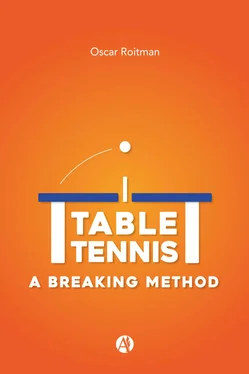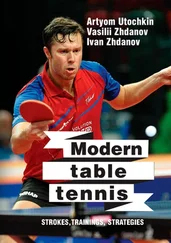It is clear that it is a sport that you like, since wherever you go and you comment that you are linked to table tennis, everyone is quick to say that they play or have played ping pong, in a garage, in a campsite, a parish, to the outdoors, in the schoolyard, wherever. They have all played, but they do not practice it.
So, you may wonder, what is the reason why people do not come to practice table tennis? I think there is never a single reason, the answer is always poly causal, but I am going to dare to launch a theory about one of the possible causes for which I understand, it is not practiced regularly nor do people who like it join the federated structure. of this sport.
The project that I lay out here is from the pedagogical and methodological point of view.
Usually, a table tennis fan goes to a club or to an association to learn how to play the sport or to improve his/her pre-existing skills. There he/she meets a coach who proposes him/her a series of activities which in the short time are found tiresome and he/she decides to abandon.
Let me explain all this better. For example, in the case of young children, they go to a class and the coach explains to them quickly how to take a racket and they must go to train on the table immediately.
It is not always this way, but most often. As soon as he/she goes to the table he/she receives a concert of technical explanations about forehand and backhand drives, slices and so on. The only exercise is to "repeat", repeat and repeat until the technique comes up properly.
I agree that repetition is the base of automatism and part of the process of learning the technique, but it is not the only way. There are many other possibilities which are less boring, less dull or non-motivating. The mere repetition leads students to abandon quickly. Furthermore, some coaches, without considering the players' maturity process, want to prepare successful players in a very short time thus, taking a shortcut to achieve the target quickly. In the case of adults, it is practically the same. The difference is that, sometimes, adults complain about it and try to change the activity according to their own will. Children never do that. This book tries to show something different. I am absolutely convinced that there is a possibility of learning in another way: having fun, doing a great variety of activities, giving real importance to the ludic aspect and connecting table tennis to the competitive aspect through different and specific games.
As table tennis has been my passion since very young and during that time I have built up a wealth of knowledge I would like to share with you through this project. The challenge is to present something different to get players out from their "comfort zone" that gives them confidence, which, at the beginning, may seem easy, but, in the long term, it is complicated. The challenge is also to be creative, to reinvent table tennis, to let you discover your own method, your own working philosophy that will be rewarding for all people related to table tennis. And, what is more, that ensures a long life in the sport to those who want to practice it regularly.
THE WAY
Конец ознакомительного фрагмента.
Текст предоставлен ООО «ЛитРес».
Прочитайте эту книгу целиком, купив полную легальную версию на ЛитРес.
Безопасно оплатить книгу можно банковской картой Visa, MasterCard, Maestro, со счета мобильного телефона, с платежного терминала, в салоне МТС или Связной, через PayPal, WebMoney, Яндекс.Деньги, QIWI Кошелек, бонусными картами или другим удобным Вам способом.












